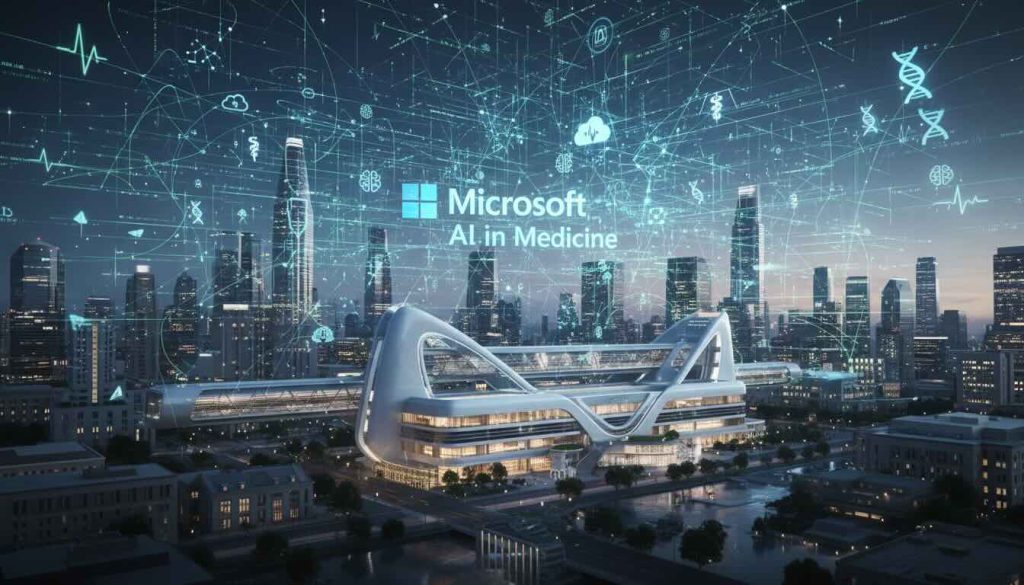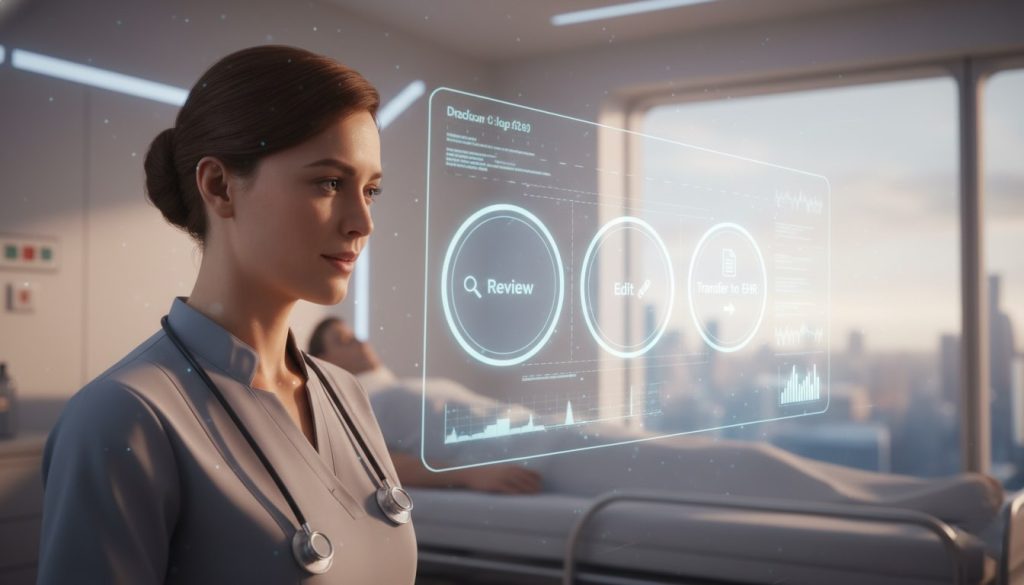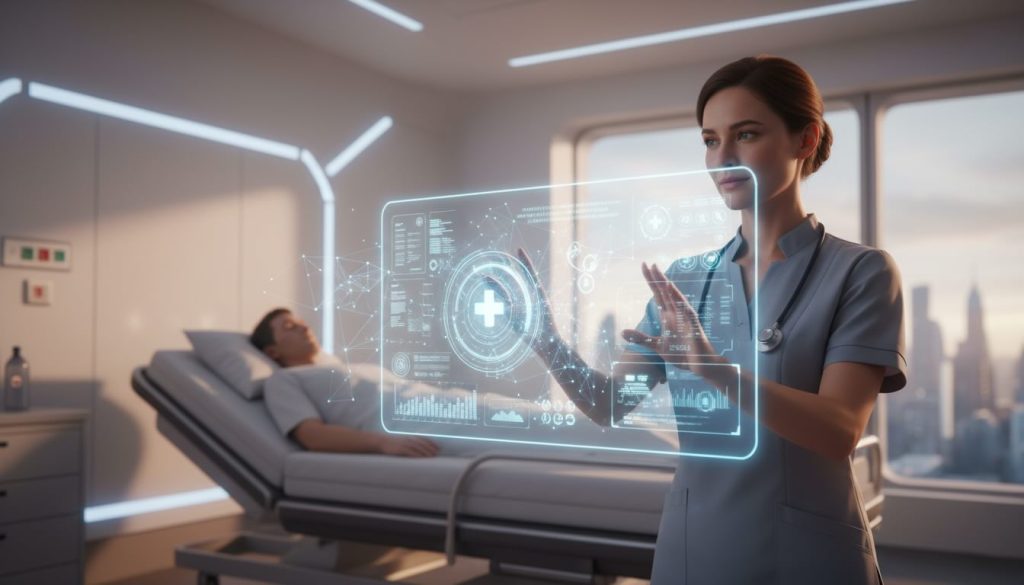| Insight | Why It Matters | Application | Tags |
|---|---|---|---|
| Microsoft expands Dragon Copilot for nurses | Reduces documentation workload for nurses | Automates patient interaction notes in real-time | AI in healthcare, nursing technology |
| AI-driven clinical documentation | Improves accuracy and efficiency in care delivery | Converts voice and interaction data into structured records | Dragon Copilot, Microsoft Health |
| Collaboration with major health systems | Ensures real-world usability and safety | Nurse-led testing improves adoption and feedback | Advocate Health, workflow automation |
| AI for better patient time | Frees nurses from administrative overload | Allows more human connection with patients | Patient experience, AI nursing tools |
Microsoft is bringing artificial intelligence closer to the heart of hospital care. The company has officially announced the expansion of its AI-powered clinical assistant, Dragon Copilot, tailored specifically for nurses. The move aims to solve one of healthcare’s biggest challenges: excessive documentation time that often pulls nurses away from patients.
Dragon Copilot, originally launched in spring 2025, was built to assist doctors with note-taking and administrative documentation. The latest update takes that capability a step further. Now, the AI assistant can record nurses’ interactions with patients, help document care, and retrieve hospital protocols or medical content when needed. The goal is clear let nurses focus more on care and less on data entry.
Mary Varghese Presti, Corporate Vice President and COO of Microsoft Health and Life Sciences, emphasized that nurses work differently from doctors. “What we built here for nurses is not a rinse and repeat,” she explained. “Their documentation needs are distinct, and our AI had to understand that.”
Microsoft collaborated with several major healthcare systems, including Advocate Health, to fine-tune the tool based on real hospital feedback. Advocate Health started using the new nurse-specific Dragon Copilot in April with an initial group of 20 nurses, and the results were significant improved efficiency, faster notes, and more time for patient care.

Using the assistant, conversations between nurses and patients are automatically converted into flowsheet documentation, a structured data format nurses can review before submitting. The review process allows nurses to pause, verify accuracy, or make edits before data transfers into the Electronic Health Record (EHR). This safeguard ensures that while AI automates repetitive tasks, human oversight remains central to care.
For nurses like those at Advocate Health, the shift has been liberating. “It gives them more time at the bedside with patients forming relationships,” said Chief Nurse Executive Betty Jo Rocchio. “Nobody becomes a nurse to spend hours typing. They want to care for people.”
The upgraded Dragon Copilot AI for Nurses will be generally available in the U.S. in December 2025, marking the first commercially available ambient documentation product designed specifically for nursing workflows.
Microsoft, which acquired Nuance Communications (the creator of Dragon Medical) for nearly $20 billion, has been rapidly expanding its healthcare AI portfolio. The company also announced new partnerships that allow third-party developers to create apps and AI agents integrated with Dragon Copilot expanding its reach into areas like revenue cycle management, patient experience, and virtual care.
Through integrations with OpenEvidence and Wolters Kluwer’s UpToDate, the assistant can now provide instant access to verified medical content directly during patient interactions another leap toward making AI a trusted digital partner in clinical decision-making.

The Bigger Picture:
Microsoft’s expansion of Dragon Copilot AI for nurses signals a critical turning point in healthcare AI adoption. The technology aligns with global trends toward ambient documentation, where AI listens, learns, and records seamlessly in the background. For hospitals, this means higher productivity and reduced burnout. For nurses, it means reclaiming time, focus, and energy to connect with patients. And for Microsoft, it positions the company as a leader in healthcare AI infrastructure, rivaling giants like Google Health and Amazon Web Services. The broader impact will ripple through U.S. and global healthcare systems, where documentation efficiency, compliance, and human connection are all essential to sustainable patient care. As 2026 approaches, the Dragon Copilot model may become the standard blueprint for integrating conversational AI directly into clinical workflows not as a replacement, but as a reinforcement of human-centered medicine.
#MicrosoftAI #DragonCopilot #HealthcareInnovation #NursingTech #AIinHealthcare #ClinicalDocumentation #NurseAssistantAI #PatientCare #NuanceAI #HealthTechRevolution #AmbientAI #DigitalNursing #MicrosoftHealth #AIAutomation #FutureOfHealthcare















0 Responses
No responses yet. Be the first to comment!